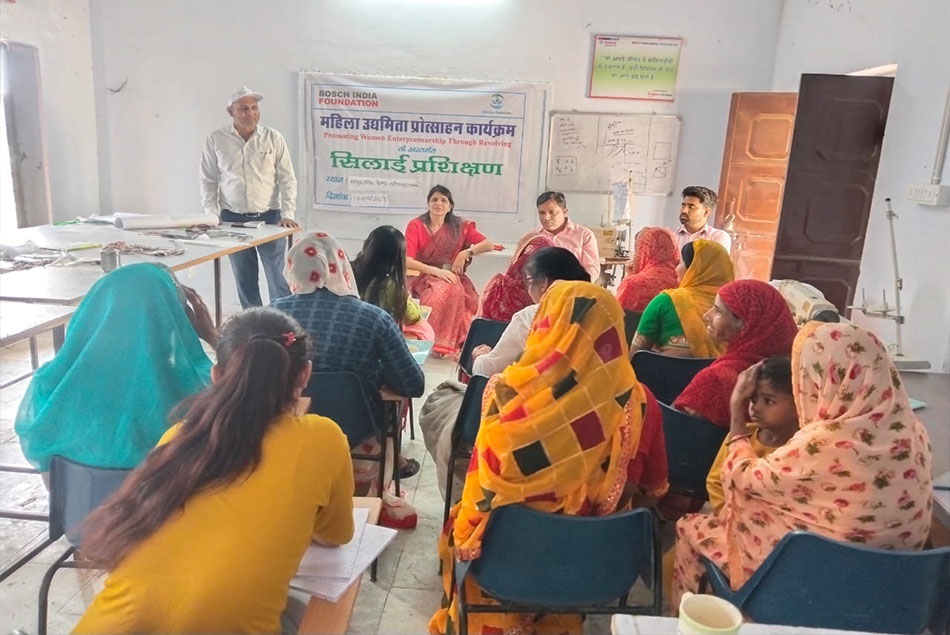Women Empowerment

As the operation and execution began, health was one of the women-centric programmes in which DHARA Sansthan tackled health issues concerning female health. After extensive field interaction, progressive needs that centred on empowering women in every family were gradually recognised.
Traditionally, women in this region have been expected to multitask and contribute a significant portion of the household economy in terms of food grains, oilseeds, vegetables, and so on. Women’s literacy rates are also lower than those of men. Women have a lower participation rate in tertiary sectors such as medicine, teaching, administration, and other official services than men. Excessive duties in this field bind women out of different opportunities and force them into the trap of several mishaps.
In light of the foregoing, DHARA Sansthan’s top priority became economic empowerment for women. Since its inception, DHARA Sansthan has prioritised women’s development. With this in mind, DHARA Sansthan intended to assure their participation as women are the primary carers in their households through a welfare strategy. Need-based assistance was encouraged, as was the creation of an empowering group through depository linkage services for a successful entrepreneurship programme.
Initiatives for women empowerment were initiated at the time, such as SHG group special focus women from the marginalized classes, exposure visits, women conference, handicraft trainings for SHGs’ in various blocks of Barmer and Jaipur, special day celebration, artisans’ trainings, and embroidery project to enhance women’s capacity.
With the joint support of the BOSCH India Foundation, the primary programme began with 80 beneficiaries in 2021. Since then, the programme has been on a revolving fund, with set seed funding granted and paid back in 10 equal monthly installments with no interest.
The main goal is to provide capacity building for them to ensure that income is generated, livelihood opportunities are provided, that they successfully establish their own small-scale entrepreneurship, that they reduce dependency on a single source of income, and that they create sustainable livelihoods for the beneficiaries with the replicable mood to provide income generating opportunities by strengthening communities and building a better future for all.
